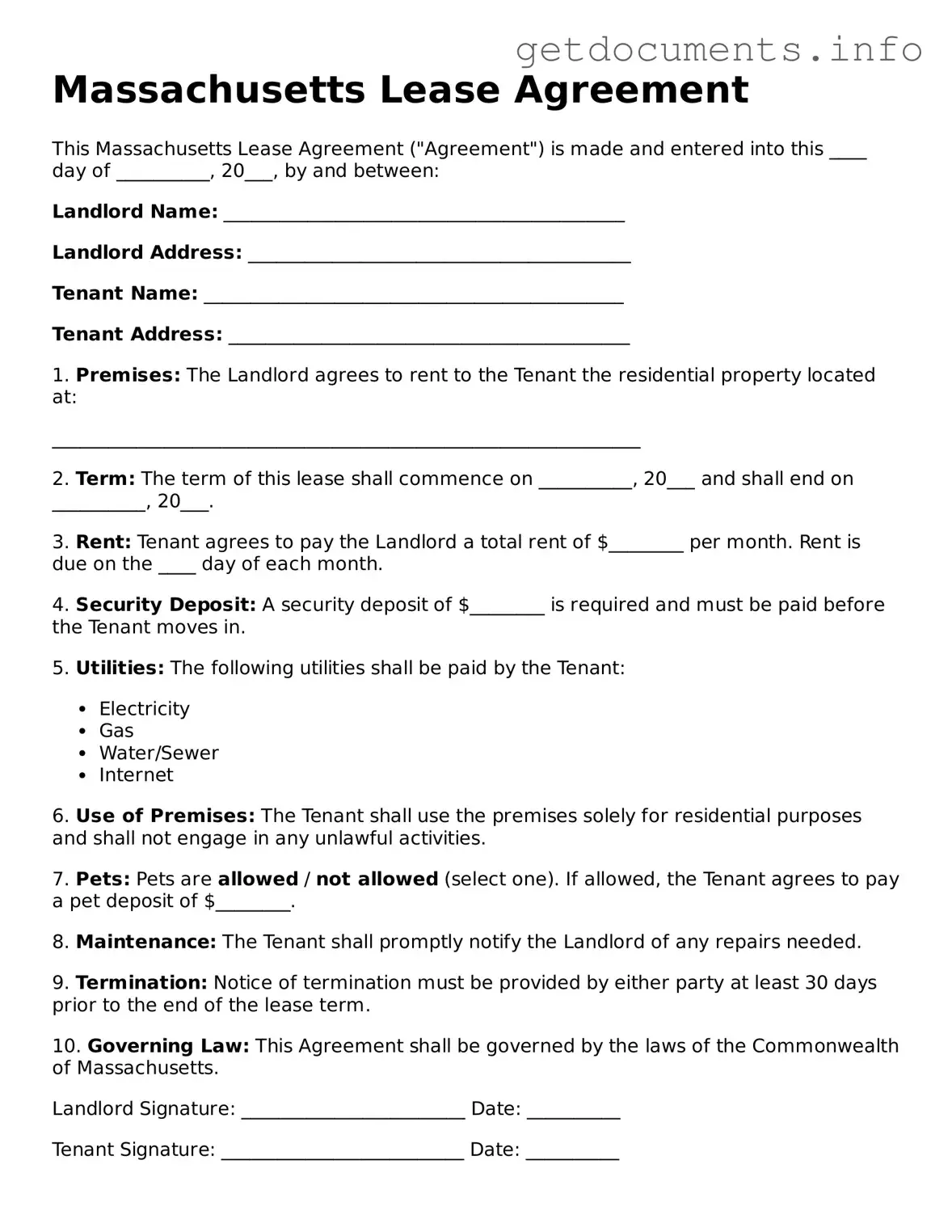Free Lease Agreement Template for Massachusetts
A Massachusetts Lease Agreement is a legal document that outlines the terms and conditions between a landlord and a tenant for renting a residential property. This agreement serves to protect the rights of both parties and ensures a clear understanding of responsibilities. To get started with your lease, please fill out the form by clicking the button below.
Access Lease Agreement Editor

Free Lease Agreement Template for Massachusetts
Access Lease Agreement Editor
Got places to be? Complete the form fast
Fill out Lease Agreement online and avoid printing or scanning.
Access Lease Agreement Editor
or
⇩ PDF File
